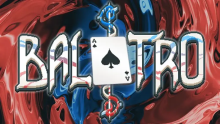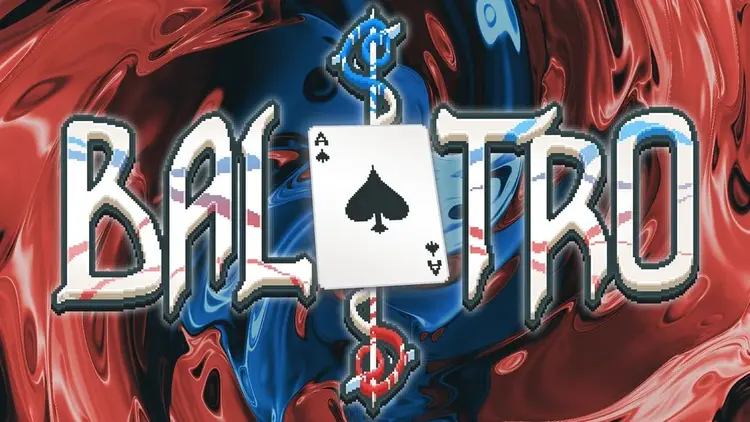
by Samuel VDB, Year 13
"Beat Ante 8 to win. Now choose your path!" Jimbo, in the Tutorial
In terms of addictiveness, Balatro is second to none in the gaming sphere. Now, having seen the thumbnail, and being aware of the school environment, I will make this perfectly clear: Balatro involves no gambling, not even fake gambling. It just uses cards and poker hands as a scoring system. There are no microtransactions, and very little luck based elements. It's this second point, I suppose, which is driving this discussion; afterall, a rogue-like game with no story would not obviously seem fit for an exploration of political philosophy. However, I think Balatro provides a perfect example of how the philosophy of (classical) liberalism operates within a state.
In Balatro, the only luck is your seed, which generates the appearance of Joker cards, Tarot cards and planet cards. Each of these affects your score in some way; Jokers modify the way your hands score points, Tarot cards affect the composition of your deck (One of the most successful strategies, for example, is to have 52 kings) and Planet cards modify the base values of hands played. Apart from that, everything is in the player’s hands: managing money, making decisions on which jokers to buy, discarding or playing hands of cards. It is the perfect mix of chance and clear decision making which makes it skilled based, but also varied.
Life, perhaps, can be viewed in a similar way under a liberal viewpoint. Whilst our starting conditions affect the hand we draw in life, the decision lies in how to play it. Of course, everyone agrees that they should be played in the best possible way, but what does this look like? For the Liberal, the answer is that the best way to play is left up to the individual. There should be “negative freedom,” that a person should be free from coercive relationships in order to best operate life how they wish.
Now, there is the caveat of the principle of harm, that Liberals believe one’s freedom should not hurt society. However, as Balatro is a single player game, we thankfully don’t need to adventure down that rabbit hole. Balatro’s nature as a rogue-like can offer us more insight into Liberalism as a philosophy. In Rogue-like games, each player's death is permanent, and results in a new playthrough from the beginning. Ok, this seems morbid in its assessment of life, and ignores the fact that well… getting presented with a restart button after we die seems unverifiable. However, our interest is in the way this affects the decision making process for the player. Each run offers new strategies for the player to explore, and the more runs that are made, the more the best strategies are understood and prioritised. Vampire+ Midas Mask, Oops, all sixes! And Heartstone, Baron + Mime and the Hallowed Photochad (All great strategies, and all Gibberish) rise to the top of the players’ market of strategies.
In a similar way, ideas, economics, and values rise to the top under Liberalism, with the twist that instead of a single player playing a vast amount of games, it is a vast amount of people participating in a single life. Alternatively, one could choose to segment life into days or weeks and suggest each week as a playthrough, and this being the mechanism for the selection of the best ‘strategies’ to life. In effect, the way in which a person discovers a good balatro build, is the same way someone selects what information to believe in, or whether stoicism is a good philosophy of life, under Liberalism. They test it against real life, and the most effective, or best strategy, wins, and rises to the top of the market of ideas.
There are two more principles to (Classical) Liberalism and Balatro. Firstly, is the idea of non-intervention. If you, like me, are attempting to get the maximum score on the highest difficulty of the game, and after 100 hours still can’t, Balatro refuses to capitulate and hand you a round one legendary Joker to make you feel better (As much as I would want it.) This is because - aside from bad game design- it would impact how you make strategies, as you would be dependent on the game to solve itself for you. In a similar manner, Classical Liberals would argue that it is not in the state to sort out your ineffective habits and ways of operating in life for you, and it is your responsibility to, well, be better.
Secondly, is the way both things play on personal, and in deed numeral, incentives. Balatro is a faithful believer in the principle of “number go up”. The whole point of the game is around making a score go as high as possible. For no discernible reason. You go as high as you can until you can’t meet the bar, and then start again. For some reason, human (at least my) psychology has some obsession with maximalising arbitrary values. Liberalism, in the same way, is intricately entrenched with Capitalism, and maximalising gain for the self (though in a less arbitrary manner) For both, there are clear incentives in finding the best strategies.
Am I flattering Balatro by talking about it in conjunction with Liberalism? Am I insulting Liberalism by mentioning Balatro in the same breath about it? I think it depends on your notions of liberalism beforehand - and if you somehow hate Balatro. Ultimately, both play on human nature in interesting ways, and pose the question: Perhaps it is best if we leave people to figure it out on their own.




























